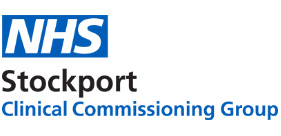Know Your Numbers Week 10th – 16th Sept 2018
5th September 2018
Know Your Numbers Week has got nothing to do with maths but a whole lot to do with your health.
Organised by the Blood Pressure UK, the week long campaign is designed to educate us on the health problems linked with high blood pressure.
It’s also about encouraging us to monitor our blood pressure – in short, to get to know our numbers!
Health and council leaders in Stockport are backing the campaign and want everyone over 40 to get their blood pressure checked if they don’t already know what it is.
High blood pressure – medically known as hypertension – often has no symptoms but significantly increases your risk of having a stroke or heart attack and is one of the main factors in heart and kidney disease.
A quick and painless test can identify the problem but while 43,000 people in Stockport have been diagnosed with hypertension and are being treated, it’s believed around 15,000 people have high blood pressure and don’t know it.
Dr Simon Woodworth, a local GP and Medical Director for Stockport CCG, said “Having your blood pressure taken costs you nothing but we have a huge number of people in Stockport who are putting themselves at unnecessary risk by not having it done.
“It really is nothing to be afraid of. The test is simple and quick and the treatment, if you have high blood pressure, is easy. If not for yourself, do it for your family. They’ll be the ones left devastated if you have a heart attack or stroke.”
“There are a number of ways to keep your blood pressure down, such as eating less salt, taking more exercise, losing weight if you are overweight and drinking less alcohol.”
If you can get to your practice then a quick test will tell you if your blood pressure is higher than it should be and there are plenty of ways to treat it.
You are said to have hypertension if your reading consistently shows your blood pressure to be 140/90 or higher. Ideally you should aim for a reading under 120/80.
If your blood pressure is slightly raised it can often be brought down to a healthier level by some modest lifestyle adjustments – losing a bit of weight, doing some more exercise and reducing the amount of salt in your diet.
If it is too high, it can be treated with a combination of lifestyle changes and medication. Your doctor will advise on the best way to deal with it.
The only way to find out what your blood pressure is to have regular checks. Keep a record yourself and remember the numbers in the same way as your height and weight. In other words, Know your Numbers! – and encourage your family and friends to do the same.
Key facts:
- Around one in three adults in the UK has high blood pressure. In England 31% of men and 26% of women have high blood pressure.
- Half of people with high blood pressure are not diagnosed or receiving treatment.
- In England there are more than five million people that have undiagnosed high blood pressure.
- High blood pressure rarely has any symptoms which is why it is called the ‘silent killer’. The only way to know you have the condition is to get your blood pressure measured.
- Every blood pressure reading consists of two numbers, shown as one number on top of the other. The first (top) number is your systolic blood pressure. It is the highest level your blood pressure reaches when your heart beats. The second (or bottom) number is your diastolic blood pressure. It is the lowest level your blood pressure reaches as your heart relaxes between beats.
- An ideal blood pressure reading is between 90/60mmHg (millimetres of mercury) and 120/80mmHg.
- You have high blood pressure if your readings are consistently above 140/90mmHg.
- Every 10mmHg reduction in systolic blood pressure reduces the risk of major cardiovascular events by 20%.
- High blood pressure is one of the most preventable and treatable conditions. However between 50-80% of people with high blood pressure do not take all of their prescribed medication.
- High blood pressure was responsible for approximately 75,000 deaths in the UK each year.
- Over 10% of all GP appointments are in relation to high blood pressure.
